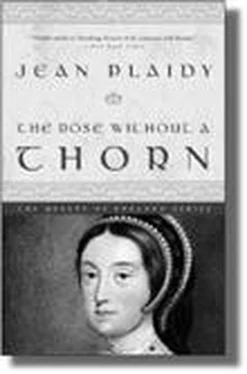Jean Plaidy - Mary, Queen of France - The Story of the Youngest Sister of Henry VIII
Здесь есть возможность читать онлайн «Jean Plaidy - Mary, Queen of France - The Story of the Youngest Sister of Henry VIII» весь текст электронной книги совершенно бесплатно (целиком полную версию без сокращений). В некоторых случаях можно слушать аудио, скачать через торрент в формате fb2 и присутствует краткое содержание. Жанр: Старинная литература, на русском языке. Описание произведения, (предисловие) а так же отзывы посетителей доступны на портале библиотеки ЛибКат.
- Название:Mary, Queen of France: The Story of the Youngest Sister of Henry VIII
- Автор:
- Жанр:
- Год:неизвестен
- ISBN:нет данных
- Рейтинг книги:4 / 5. Голосов: 1
-
Избранное:Добавить в избранное
- Отзывы:
-
Ваша оценка:
- 80
- 1
- 2
- 3
- 4
- 5
Mary, Queen of France: The Story of the Youngest Sister of Henry VIII: краткое содержание, описание и аннотация
Предлагаем к чтению аннотацию, описание, краткое содержание или предисловие (зависит от того, что написал сам автор книги «Mary, Queen of France: The Story of the Youngest Sister of Henry VIII»). Если вы не нашли необходимую информацию о книге — напишите в комментариях, мы постараемся отыскать её.
Mary, Queen of France: The Story of the Youngest Sister of Henry VIII — читать онлайн бесплатно полную книгу (весь текст) целиком
Ниже представлен текст книги, разбитый по страницам. Система сохранения места последней прочитанной страницы, позволяет с удобством читать онлайн бесплатно книгу «Mary, Queen of France: The Story of the Youngest Sister of Henry VIII», без необходимости каждый раз заново искать на чём Вы остановились. Поставьте закладку, и сможете в любой момент перейти на страницу, на которой закончили чтение.
Интервал:
Закладка:
She was exultant. They had declared their love. She had the sort of faith which would enable her to believe the movement of mountains was a possibility.
She had already made up her mind: One day I shall be the wife of Charles Brandon.
When Henry’s son was born there was more merrymaking. The boy made his appearance on the first of January; he was a feeble child who struggled for existence for a few weeks, and by the twenty-second of the following month had died.
This was Henry’s first setback, his first warning that what he urgently desired was not always going to be his. He was plunged into deepest melancholy; and that was the end of one phase of his life. He had spent almost the whole of the first two years of his kingly state in masking, jousting, and feasting; but with the death of his son his feelings had undergone a change; he would never be quite the same lighthearted boy again.
He wanted to give himself to more serious matters. His father-in-law, Ferdinand of Aragon, had persuaded him to join him, with Pope Julius II and the Venetians, against France; and because Henry saw in war a vast and colorful joust in which, on account of his youth, riches, and strength, he was bound to succeed, he was ready to follow his father-in-law’s advice and promised to send troops into France.
War now occupied Henry’s mind; he was constantly closeted with his statesmen and generals; and while he planned a campaign he dreamed of himself as the all-conquering hero who would one day win France back for the English crown.
He was impatient because he could not collect an army without delay and go into battle; he had thought a war was as quickly organized as a joust. His ministers had a hard time persuading him that this was not so, and gradually he began to see that they were right.
The Court was at Greenwich, the King much preoccupied with thoughts of conquest; and one day when he was walking with some of his courtiers in the gardens there, Mary saw him and went to him.
She signed to the courtiers to leave them together and, because Henry was always more indulgent to his sister than to anyone else, he did not countermand her order but allowed Mary to slip her arm through his.
“Oh, Henry,” she said, “how dull is all this talk of war! The Court is not so merry as it used to be.”
“Matters of state, sweetheart,” he answered, with an indulgent smile. “They are part of a king’s life, you should know.”
“But why go to war when you can stay here and have so much pleasure?”
“You, a daughter of a king and sister of one, should understand. I shall not rest until I am crowned in Rheims.”
“Do you hate the French so much?”
“Of course I hate our enemies. And now I have good friends in Europe. Between us we shall crush the French. You shall see, sister.”
“Henry, there is one matter which gives me great cause for sorrow. You could ease my pain if you would.”
“Sorrow! What is this? I was of the opinion that life used you very well.”
“I do not wish to leave you ever, Henry.”
“Oh come, my dearest sister, that is child’s talk.”
“It is not child’s talk. It is woman’s talk, for I am a woman now, Henry.”
“What! Are you so old then?”
“Henry, as you love me, stop treating me as a child. I am sixteen years old, and I am begging you not to send me to that odious Charles.”
“What’s this?”
“You know full well. Against my wishes I was affianced to him. I am asking you to break off this match.”
“Sister, you are being foolish. How could I break off this match? The Emperor Maximilian is a good friend to England. He would not be, I do assure you, if I said to him, ‘There shall be no match between your grandson and my sister … because she has taken a sudden dislike to the boy.’”
“Henry, this is my life. I am to be sent away from home … to a strange land … to marry this boy who looks like an idiot … and his mother is mad, we know. So is he. I will not go.”
“Listen, little sister. We of royal blood cannot choose our brides and bridegrooms. We must remember always our duty to the State. We have to be brave and patient, and in good time we grow to love those chosen for us because we know it is our duty to do so.”
“You married whom you wished.”
“Kate is the daughter of a king and queen. Had she not been I should not have been able to marry her … however much I wished for the match. Nor should I have done so, because I have always known that to consider the advantages to the State is the first duty of princes.”
“Henry, something must happen. I cannot go to that boy. He is but a boy … and I thank God for that, otherwise I should have been cruelly sent away from my home and all I love, ere this. He is about twelve years old now. When he is fourteen they will say he is old enough to have a wife and then … then … unless you save me …”
“It is two years away, sister. Dismiss it from your mind. In two years’ time you will understand more than you do now. You will be reconciled to our fate. Believe me, a great deal can happen in two years. Why, at one time I repudiated Kate … then, when I was King, I married her.”
Mary stamped her foot. “Henry, stop treating me as a child.”
He smiled at her as indulgently as ever, but there was a sharp note in his voice. “Remember to whom you speak, sister.”
“Henry,” she said vehemently, “it is because I never want to leave England. Let me marry in England. Greenwich … Richmond … this river … this King … these I love.”
He patted her hand. “Methinks,” he said, “that I am over-soft with you, sister. It is because of the great love I bear you. I no more want you to leave us than you wish to. But I can no more keep you back than I could have kept Margaret.”
“You did not care that Margaret went.”
“I had no wish for her to go to Scotland. I love not the Scots.”
“And you love these Flemings, these Spaniards?”
“My wife is a Spaniard, sister, remember. Oh come, smile. Do not grieve about tomorrow when there is so much to make you smile today. I will tell you something. We will have a masque to beguile the time. You shall help me plan it, eh? And it shall be in your honor. How is that?” He turned and called: “Brandon! Compton!”
And it was when they were joined by these two that he noticed the look which Mary bestowed on Charles Brandon. She was too young to disguise her feelings and Henry believed he knew why she had suddenly become so eager to avoid the marriage with Charles of Castile.
So she had cast her eyes on Brandon. Well, Brandon was one of the most attractive men in his Court … the most attractive, with one exception. They were so much alike that when they wore masks one was often mistaken for the other. They could have some good sport with this resemblance.
Oh yes, he could quite understand the effect a man like Brandon would have on an impressionable girl.
It was nothing, though. A passing fancy. This happened with young girls now and then.
Brandon at the moment was unattached. It might be well to deal with that matter. When he had time he would remember. In the meantime he must keep Mary amused, for he was too fond of the child to be able to look on unmoved when she was unhappy.
She would have to go to Flanders or Spain at some time, but that time was not yet. He had to remember that she was a young girl with a young girl’s fancies.
All the same he would do something about Brandon.
Henry’s friendship with Charles was greater than ever during that year, and the King appointed his friend Keeper of the Royal Manor and Park of Wanstead and Ranger of the New Forest. Instead of Squire of the Royal Body he was now Knight of the same, and they were rarely out of each other’s company.
Читать дальшеИнтервал:
Закладка:
Похожие книги на «Mary, Queen of France: The Story of the Youngest Sister of Henry VIII»
Представляем Вашему вниманию похожие книги на «Mary, Queen of France: The Story of the Youngest Sister of Henry VIII» списком для выбора. Мы отобрали схожую по названию и смыслу литературу в надежде предоставить читателям больше вариантов отыскать новые, интересные, ещё непрочитанные произведения.
Обсуждение, отзывы о книге «Mary, Queen of France: The Story of the Youngest Sister of Henry VIII» и просто собственные мнения читателей. Оставьте ваши комментарии, напишите, что Вы думаете о произведении, его смысле или главных героях. Укажите что конкретно понравилось, а что нет, и почему Вы так считаете.












